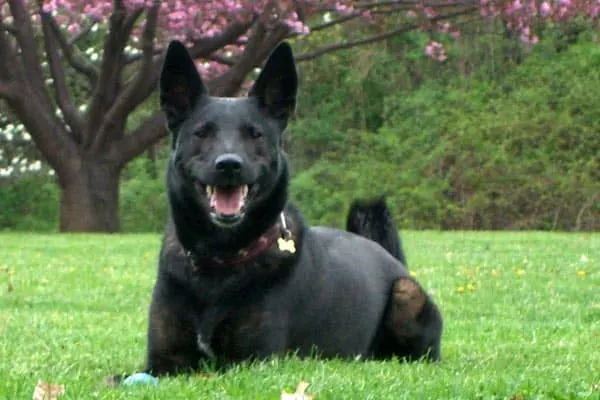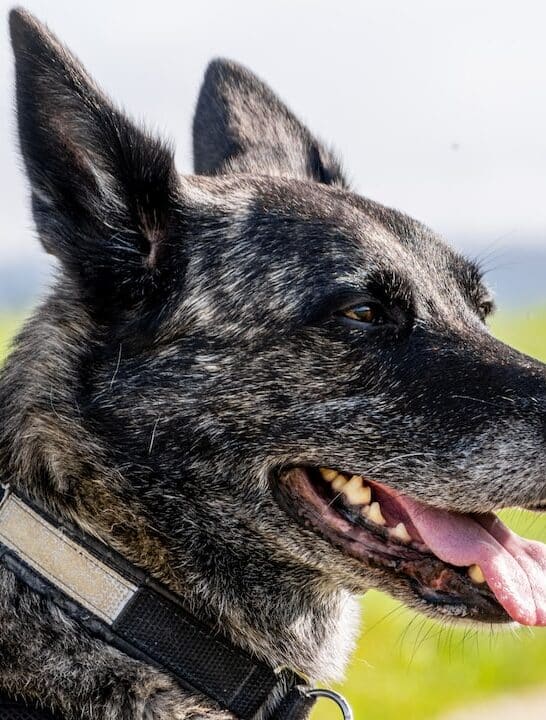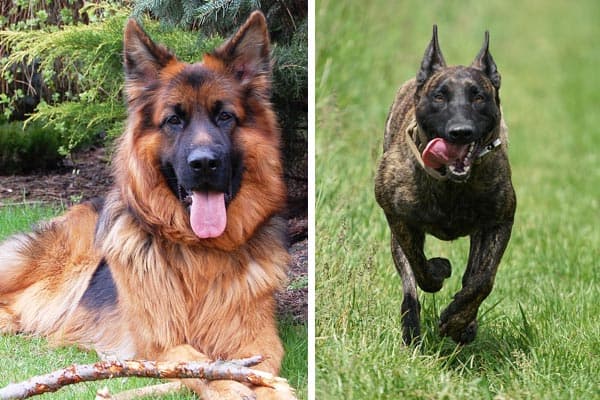How Smart Is a Dutch Shepherd: Insight Into the Intellgence of These Unique Dogs
The Dutch Shepherd isn’t a dog breed that most people can recognize and name on sight.
They are a lesser-known natural dog breed, which means they evolved organically (rather than through deliberate cross-breeding) to work alongside farmers and shepherds in their homeland of The Netherlands.
In order to be a good dog owner for a Dutch Shepherd, it is so important to understand where these dogs have come from, the kind of work they are born to do, and what a Dutch Shepherd companion canine needs to stay happy and healthy in family life.
In this article, we take a look at the topic of Dutch Shepherd dog intelligence. How smart is the Dutch Shepherd? What type of intelligence do these dogs display? What is the best training for a Dutch Shepherd? Learn the answers to these and other questions now!

How Smart Is a Dutch Shepherd Dog?
As the North American Dutch Shepherd Rescue charity (NADSR) highlights, the Dutch Shepherd can literally do it all.
This short video by a Dutch Shepherd owner shows just a few of the complex tricks and feats the Dutch Shepherd can learn in the hands of a skilled dog trainer.
These dogs have been trained for working dog roles for generations, starting all the way back in their native Netherlands when they willingly worked alongside farmers and shepherds doing basically any job that needed doing.
Unlike many dog breeds, the Dutch Shepherd breed is considered a “natural” dog breed that was discovered by modern dog fanciers rather than consciously bred by modern dog breeders.
This is why the Dutch Shepherd isn’t as well known as so many other purebred dog breeds, although it is becoming more popular as more people learn about the incredible work ethic and capabilities of this dog.
Understanding the Different Kinds of Canine Intelligence
As Science Alert points out, in the world of canine intelligence these are the main dog intelligence umbrella categories:
- Adaptive intelligence
- Working intelligence
- Instinctive intelligence
- Spatial intelligence
- Kinesthetic intelligence
- Interpersonal intelligence
Of these six types of canine intelligence, the first three are the most important for understanding the Dutch Shepherd dog’s type of intelligence.
Adaptive intelligence
Adaptive intelligence is often likened to simply “figuring stuff out.”
For example, let’s say a Dutch Shepherd is out on the job herding sheep. A predator slinks up to try to grab a sheep dinner.
The Dutch Shepherd has to figure out at that moment what the best way is to repel the predator without losing control of the herd (or losing any sheep).
A similar example from a modern pet dog life would be if your Dutch Shepherd wants to chase a squirrel that just leaped over your backyard fence and disappeared.
Not surprisingly, Dutch Shepherds can be incredible and persistent escape artists, which means your backyard needs to be escape-proof to protect your puppy and the neighborhood squirrel population!
Working intelligence
Working intelligence is most commonly described as simply “comprehending and carrying out orders.”
Dogs that can master a new order or command in five tries or less and accurately replicate that command at least 95 percent of the time are often ranked as the “smartest” dog breeds.
However, this is only one aspect of canine intelligence and is not always the most important aspect when you are working with a herding or protection dog like the Dutch Shepherd.
In fact, sometimes Dutch Shepherds can display a surprising independent streak and be perceived as willful, stubborn, or obstinate. This may be interpreted as stupidity or inability to be trained.
But in fact, this is a facet of the unique type of intelligence a Dutch Shepherd inherits. These dogs need to be able to make up their own minds in a hurry. They need to be independent workers to do their difficult jobs well.
In a companion canine setting, this may result in behavior that seems obstinate or willful, but often this behavior is just because the Dutch Shepherd has become bored or because the trainer is behaving in an inconsistent manner when issuing commands.
Keeping training sessions short and mentally engaging with lots of new skills added is the best way to keep your Dutch Shepherd enthusiastic and obedient.

Instinctive intelligence
Instinctive intelligence is best understood as innate or inborn talent. For example, a Dutch Shepherd comes into the world already possessing the raw material (genetic inheritance) to be a great working dog in a variety of jobs.
But just like inheriting musical talent does not automatically make you a skilled musician, it is the training and practice a Dutch Shepherd receives from puppyhood on that will determine how well (or whether) their instinctive intelligence unfolds.
Dutch Shepherds need firm, consistent, positive training to capitalize on their natural working drive and talents.
A Dutch Shepherd that is neglected, abused, subjected to negative (punishment-based) training methods, or simply inconsistent training is likely to grow up reactive, aggressive, and very difficult to control.
The Smart Dutch Shepherd Needs Two Kinds of Exercise: Physical and Mental
As you are now learning, the Dutch Shepherd is intensely intelligent in a way that often doesn’t lend itself to the life of a companion canine.
These dogs won’t be content with just sheer physical exercise, although certainly lots of physical activity is better than nothing!
But Dutch Shepherds also thrive on mental exercise – agility for the mind. They love learning new tricks and performing them with their owners, as the short video you watched here earlier showcases so well.
In other words, Dutch Shepherds need to tire out their brains as well as their bodies.
The Dutch Shepherd Dog Club of America (DSDCA) suggests all of these activities as some great ways to keep your Dutch Shepherd well exercised in both body and mind:
- Agility competitions
- K-9 training (protection, military, police work)
- Search and rescue
- Tracking and scent trailing (nose work)
- Herding and ranch hand
- Obedience and rally training
- Hunting
- Guide dog and service dog work
- Lure coursing
- Dock diving
- Conformation (show dog)
- Flyball
Even if you don’t particularly need your Dutch Shepherd to become trained in any specific job, your dog will appreciate the daily mental and physical challenge and – most importantly – will be far too tired at day’s end to do more than fall asleep.
Getting involved in any of these athletic disciplines will also give you and your pup plenty of chances to meet and interact with other owners and their Dutch Shepherds, providing the ongoing socialization and training to reinforce what your dog has learned.

The Importance of Socializing Your Smart Dutch Shepherd Dog
Another important need that such a smart dog breed requires is early and ongoing socialization with people and animals.
The American Dutch Shepherd Association (ADSA) strongly recommends starting socialization in puppyhood for the best results.
This is because your Dutch Shepherd is born with a very high set of drives to protect and to chase prey. Dutch Shepherds need to learn the difference between friendly people and animals and those that represent a threat.
While this is easy to do while herding a flock of sheep, it is a lot harder when out on a walk in your neighborhood!
By learning to see your world through your Dutch Shepherd’s intelligent eyes, you can provide what your dog needs to thrive.




















